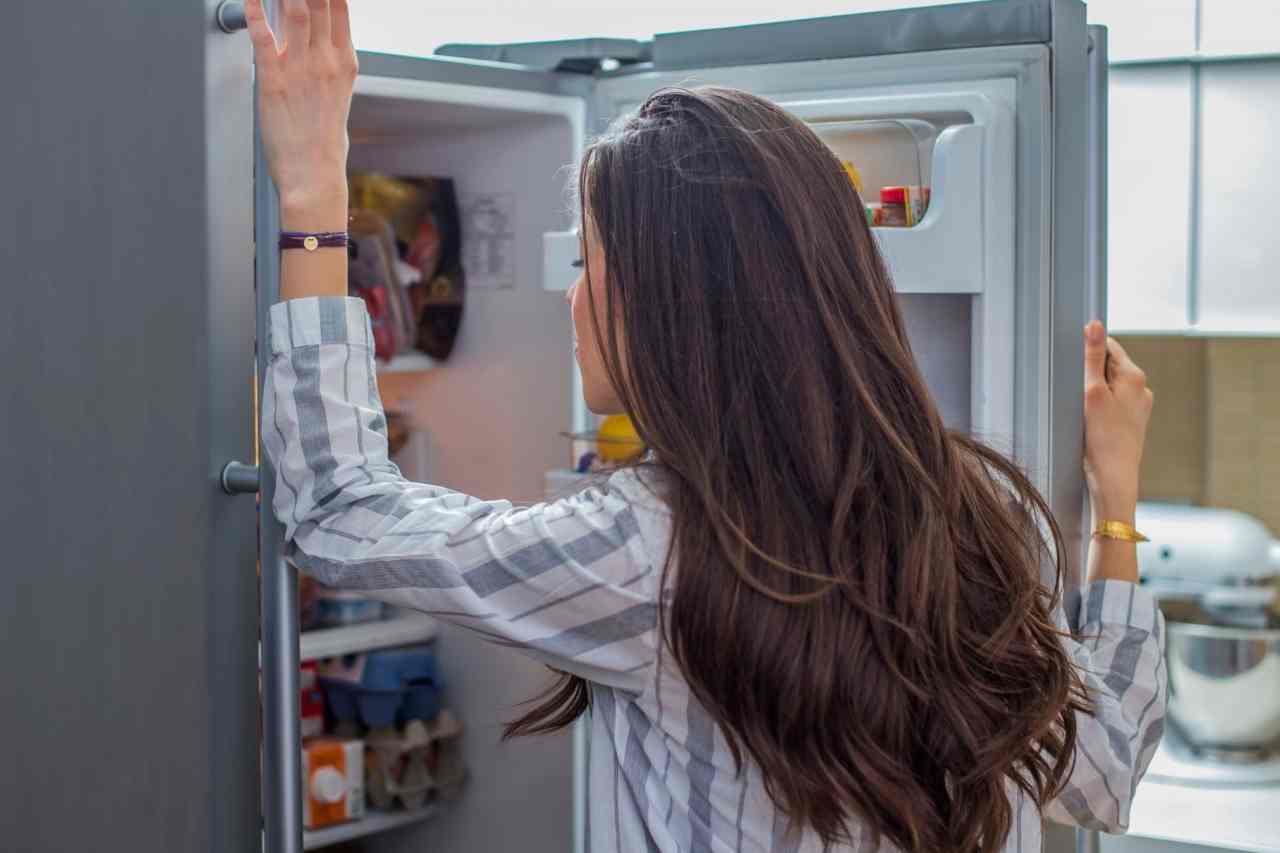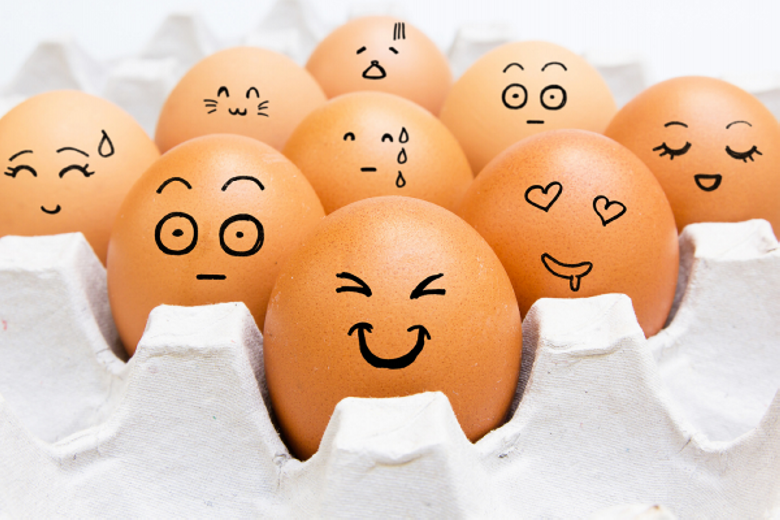Should you usually discover that you simply eat solely to note your abdomen screaming in starvation an hour later, it’s possible you’ll be left questioning why. Even after a seemingly ample meal, it occurs to the most effective of us.
More often than not, it’s possible you’ll assume starvation and overeating have an apparent trigger, like not consuming sufficient fiber and protein or seeing one too many commercials for tempting meals. The fact, although, is the rationale you usually stare down at a plate the place solely crumbs stay but really feel unhappy may be a lot much less apparent than that.
Urge for food — which we will outline merely as the will to eat — is a fancy phenomenon involving physiological, psychological and sociological elements. Over time, the causes of your cravings and consuming past what is critical can contribute not solely to unintentional weight achieve, however may also depart you feeling much less glad with what you’re consuming.
If that is your battle, it may be about time to get your urge for food again consistent with more healthy consuming patterns. The next steps will assist overcome the underlying culprits of overeating as soon as and for all.
1. You’re Skimping on Sleep
The U.S. Facilities for Illness Management and Prevention has famous that poor sleep may be linked to heart problems, diabetes, despair and different persistent well being situations. It additionally seems to be a danger issue for weight achieve. Maybe a giant motive for these connections is the influence {that a} lack of correct shut-eye has on our consuming habits.
A latest research within the Journal of the Academy of Diet and Dietetics utilizing information from practically 20,000 adults aged 20 to 60 years enrolled within the Nationwide Well being and Diet Examination Survey (NHANES 2007-18) discovered that people who get lower than seven hours of sleep tended to snack extra usually — not on apples and carrot sticks, however normally on calorie-dense and sugary snacks with little dietary worth — in contrast with those that sleep greater than seven hours per day. This resulted in the next every day snack calorie consumption.
Staying up later affords extra alternatives to eat and let’s face it: At evening, most of us aren’t selecting nutritious munchies. Over time, this may contribute to weight creep and poor well being. Poor sleep has additionally been proven to influence a neural mechanism in our brains that improve the desirability of meals and to hunt out meals rewards. So there’s a motive why a sleepless evening might make a donut appear extra fascinating. One research found that extending the sleeping hours of quick sleepers lowered their consumption of added sugars. Psychologically, the stress incurred from a disrupted sleep sample may also drive us to the cookie jar.
So, for those who’re struggling to keep up a nutritious diet and end up indulging in less-than-optimal snacks, maybe working in direction of higher sleep hygiene is an effective place to start out. On the very least, you’ll really feel well-rested with much less mind fog.
2. You’re Concentrating on the Flawed Factor
A lot of the consuming we do immediately is distracted consuming — in entrance of the tv, smartphones, pc screens and behind steering wheels. This generally is a downside when attempting to place the brakes on overeating.
When your senses are taken up by an enticing activity, you’re much less probably to have the ability to regulate how a lot meals or drink you take in. That is the conclusion of a research printed within the journal Urge for food which supplied 120 members with decrease and better calorie drinks whereas giving them duties that demanded each high and low quantities of their consideration. Individuals who have been totally engaged in a perceptually-demanding activity ate roughly the identical quantity of follow-up chips no matter whether or not or not they have been initially given a excessive or low calorie drink. However the individuals who have been engaged in a activity that demanded much less of their psychological energy might regulate how a lot of the extra snack they ate. The folks on this group ate 45 % fewer chips after the upper power drink than after the decrease power drink.
Separate findings printed in Weight problems involving 55 adults, imply age of 26 years, revealed that those that ate meals whereas utilizing media, corresponding to enjoying video video games or watching tv, consumed practically 150 extra energy than those that ate with out media interplay. Additional, analysis printed in Physiology and Habits discovered that utilizing a distracting smartphone whereas noshing can result in a 15 % improve within the complete variety of energy ingested.
What these outcomes recommend is that for those who’re consuming or consuming whereas your consideration is distracted by a Netflix present or your Instagram feed, you’re much less probably to have the ability to inform how full you’re feeling, which can result in overeating in the course of the meal in addition to in a while. Additionally, distracted consuming can encourage senseless pace consuming. Meal after meal, this may ultimately result in undesirable weight achieve because it ends in a delayed realization of fullness. You’re not studying this text whereas gorging down your lunch sandwich, are you?
Full distraction-free consuming shouldn’t be life like for many of us. But it surely may be a worthwhile aim to take the required steps to verify the grub in entrance of you is the middle of your consideration extra usually. That might imply protecting the tv turned off throughout mealtime, not inhaling lunch in entrance of the pc and, like our elbows, protecting the smartphone off the dinner desk.
To decelerate the tempo for higher satiety strive slicing your meals into smaller items, placing utensils down between every chunk and chewing your meals extra totally. A research in Frontiers of Psychology found that the straightforward act of chewing, no matter style, odor, or precise ingestion, is sufficient to cut back impulsive consuming.
3. You’re Pondering About Your Meal the Flawed Approach
Specializing in how tasty your meal goes to be might set you up for poor portion management. Researchers have discovered that there generally is a portion dimension shift when folks change their mindset to focus on several types of info when planning their meal. Adopting a health-focused mindset, corresponding to specializing in the dietary worth of a meal or what influence it can have in your targets produces higher portion management outcomes than specializing in pleasure or the will to refill.
Mind scans reveal that the health-focused mindset strategy can set off exercise within the space of the mind linked to self-control. In distinction, throughout a pleasure mindset situation, there’s a heightened response in a taste-processing area of the mind. Additionally, labeling no matter you’re consuming as a “meal” as a substitute of a “snack” in your head appears to be like like a great way to reign in overeating. As an illustration, scientists have decided that those that had eaten pasta labeled as a “snack” ate extra at a check meal in a while than when the pasta had been labeled as a “meal.” After we consider we’re consuming a snack, we is probably not as aware of our consumption.
At any time when assembling a meal or snack, zero in on its healthfulness and the way it will influence your physique — for higher or worse. You are able to do this additionally at any time when you might be ordering meals from a restaurant. For instance, ignoring the truth that pizza tastes wonderful and as a substitute specializing in the way it’s probably a calorie bomb might enable you to resist that third slice. And to beat snacking breakdown, we will name no matter we’re consuming, together with simply an power bar or yogurt cup, a meal to assist make us extra conscious of what we’re consuming we don’t overeat in a while.
4. You’ve Liquified Too Lots of Your Energy
There’s nothing unsuitable with following a hard-charging exercise with a protein shake, however it won’t be the most effective concept to wedge too many liquid energy into your weight loss program. A research within the journal Weight problems uncovered folks to the identical variety of energy in liquid or stable type solely to search out that post-meal starvation and want to eat have been better when topics consumed liquid energy.
It seems that the stable meal results in a better drop in ranges of the hunger-inducing hormone ghrelin, which might assist tame your urge for food. Additionally, fibrous construction in meals like complete fruits helps gradual its absorption, which might contribute to better emotions of satiety.
The same investigation found that when folks consumed a high-protein breakfast in beverage type, that they had a decrease discount in urge for food for just a few hours afterward and consumed extra at a lunch meal than when in addition they took in a protein-rich breakfast however in stable type. The takeaway is that the physique doesn’t register 300 liquid energy in the identical method it does if these 300 energy got here within the type of complete meals. This might result in elevated starvation and better total every day calorie consumption. Therefore, one motive for the robust affiliation between soda consumption and weight achieve.
General, you need most of your every day energy to return within the type of stable meals. (Beverage consumption accounts for as much as 20 % of energy within the typical American weight loss program). Meaning bidding adieu to orange juice in favor of an entire orange, choosing a kale salad as a substitute of inexperienced juice and saying sayonara to sweetened drinks like soda for calorie-free choices like water or tea. And if you do whip up smoothies, make them good and thick. A Dutch research found {that a} thick milkshake result in better emotions of fullness than a thinner model regardless of containing solely one-fifth of the energy. Name it a case of phantom fullness. Because of this, a bowl of yogurt is more likely to quell your starvation extra so than a glass of milk.
5. You Eat within the Flawed Order
Should you’re a giant fan of bread or potatoes, save the most effective for final. A research from the Complete Weight Management Middle at Weill Cornell Drugs in New York Metropolis discovered that when folks ate a meal consisting of bread, orange juice, rooster and salad their blood sugar ranges have been about half as excessive afterward when the carbs (bread and OJ) have been consumed following the protein (rooster) and veg (salad) in comparison with when the order was reversed.
The protein in rooster and fiber in greens probably slows the trickle of the sugar into your bloodstream. Higher stabilization of post-meal blood sugar shouldn’t be solely necessary in slashing diabetes danger, but additionally can play a job in your power ranges and cravings. A sharper rise in blood glucose can will increase your want to eat extra by way of the mind’s reward circuit. There’s a motive the waiter needs to drop off a bread basket earlier than taking your order. The aforementioned analysis additionally found that front-loading the meal with rooster and salad boosted ranges of the hunger-busting hormone GLP-1 that would depart you with much less dessert lust.
The upshot is that it may be worthwhile to strive working towards this carbs-last strategy at your meals. So that would imply consuming your hard-boiled egg earlier than your breakfast oatmeal or devouring your salmon and steamed broccoli earlier than digging into the brown rice.







